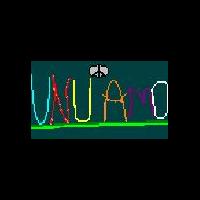შეტყობინებები: 33
ენა: English
Oŝo-Jabe (მომხმარებლის პროფილი) 19 ნოემბერი, 2009 00:13:07
Rogir:Quite. In fact the only reason "ain't" isn't more used, even though it popped up around the same time as other contractions, is because it was determined by the 19th Century prescriptivist upper class that it was too vulgar for formal English. As a contraction of "am not" it actually makes more sense than the offered alternative "aren't" in the question "Aren't I?" > "I are not." versus "Ain't I?" > "I am not.'Greyshades:I may be wrong, but as I see it, "ain't" is much more of a error than using the accusative wrong. Still, funnyI disagree. the accusative is an integral part of Esperanto whose correct use carries a lot of information. Also, that English sentence would be correct in certain dialects.
ceigered (მომხმარებლის პროფილი) 19 ნოემბერი, 2009 05:23:38
Greyshades: I may be wrong, but as I see it, "ain't" is much more of a error than using the accusative wrong. Still, funnycan't say I agree - ain't is more or less a contraction of 'is', 'am' and 'are' where the ending got cut off (int and ant) then probably due to nasalisation and vowel changes went to ain't. (int -> iynt -> eynt -> ain't or something like that). Similar to saying the accusative with a more nasally n like in french (but not as strongly) and some Japanese accents.
Speaking of which it wouldn't surprise me if somewhere in the future of English 'are' replaces all other present tense conjugations of the copula. After all it's already there for we, you, they (the latter two being used increasingly over their singular tense variants (definitely with 'you' and "they" in gender neutral forms). And that would mirror the other heavily Norse influenced Germanic languages. And for some stupid reason there are some BBC shows where characters say 'I are' ("I are a triangle!" - me:"yes, yes you am")

Greyshades (მომხმარებლის პროფილი) 19 ნოემბერი, 2009 17:12:25
ceigered:Okay I take it backGreyshades: I may be wrong, but as I see it, "ain't" is much more of a error than using the accusative wrong. Still, funnycan't say I agree - ain't is more or less a contraction of 'is', 'am' and 'are' where the ending got cut off (int and ant) then probably due to nasalisation and vowel changes went to ain't. (int -> iynt -> eynt -> ain't or something like that). Similar to saying the accusative with a more nasally n like in french (but not as strongly) and some Japanese accents.
Speaking of which it wouldn't surprise me if somewhere in the future of English 'are' replaces all other present tense conjugations of the copula. After all it's already there for we, you, they (the latter two being used increasingly over their singular tense variants (definitely with 'you' and "they" in gender neutral forms). And that would mirror the other heavily Norse influenced Germanic languages. And for some stupid reason there are some BBC shows where characters say 'I are' ("I are a triangle!" - me:"yes, yes you am")

English contractions never made too much sense to me in some areas, but that's because it's English and it must be challenging

On the other hand I kinda wish Esperanto had a few contractions for verbs like esti, povi, bezoni, etc.
andogigi (მომხმარებლის პროფილი) 19 ნოემბერი, 2009 23:24:24
Likewise, I have seen some of the "candid camera" type material that comes out of Japanese television. To me, I actually feel sorry for some of the "victims" of these amazingly cruel pranks, many of which center around toilet humor. (Do a quick search on YouTube. You'll easily see what I'm talking about)
ceigered (მომხმარებლის პროფილი) 20 ნოემბერი, 2009 09:59:23
benanhalt (მომხმარებლის პროფილი) 21 ნოემბერი, 2009 21:55:57
ceigered:You be tripping. If all the different forms of be collapse to a single form, that form will be be. It already be happening in urban dialects in the US. It be that way in the Jamaican dialect, at least in stereotype. Aye, and that be how we right villainous pirates be speaking our English as well. Any landlubber what does otherwise be a scurvy dog, arrr!
Speaking of which it wouldn't surprise me if somewhere in the future of English 'are' replaces all other present tense conjugations of the copula.
ceigered (მომხმარებლის პროფილი) 22 ნოემბერი, 2009 10:56:21
Maybe in the future the English language will be divided into dialects classified by copula usage - "are" languages, "be" languages and the "non-pirate-esque-copulae" languages

I guess of course another important factor is the region you're living in. Here in Australia we have pretty much nothing to do with Jamaica - except during the West Indies cricket match - so the cultural influence probably isn't too great.
Ailanto (მომხმარებლის პროფილი) 22 ნოემბერი, 2009 16:06:11
ceigered (მომხმარებლის პროფილი) 22 ნოემბერი, 2009 16:54:01
Ailanto:Or maybe "to be" will just disappear...Well that could
E-Prime
 Is dat goed met allen? (I'll let Rogir correct that if he wants
Is dat goed met allen? (I'll let Rogir correct that if he wants  )
) Miland (მომხმარებლის პროფილი) 22 ნოემბერი, 2009 17:09:33
ceigered:Well that couldbeexist as a final resort, but if that happensI'm speakingI shall begin to speak Dutch..






